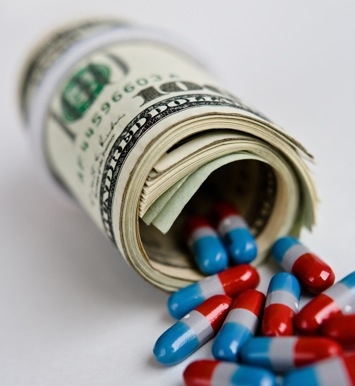
The American business community’s spin machine has gone into overdrive as the finish line for the Trans Pacific Partnership negotiations come into view. One of the more over-the-top examples of recent hype is an open love letter to the TPP posted on an American industry lobby website just before Valentine’s Day.
The love letter, posted on the Global Intellectual Property Centre website, seems at first glance simply harmless (though certainly charmless) hyperbole. But in amongst phrases like “I’d be a fool not to cross the Pacific for you” is a demand that strikes fear into the hearts of those concerned with access to affordable medicines. What the pharmaceutical industry is proposing is that it be provided with12 years of absolute monopoly – seven years longer than the current data protection period in Australia – during which it can charge whatever the market will bear.
Each year of extra monopoly protection would cost Australia’s Pharmaceutical Benefits Scheme hundreds of millions of dollars.
Biologic products include many expensive new treatments for cancer and immune conditions such as rheumatoid arthritis. What the pharmaceutical industry is proposing is to prevent the clinical trial data used to register these products with regulatory agencies like Australia’s Therapeutic Goods Administration, from being used to register follow-on (competing) products for 12 years.
“Our love is meaningful and can satisfy our biological needs – especially if you guarantee to protect regulatory data for 12 years,” says the letter.
Each year of extra monopoly protection would cost Australia’s Pharmaceutical Benefits Scheme hundreds of millions of dollars. Over the medium to long term, this could cripple the PBS, leaving future governments with terrible choices: hike up co-payments to recoup costs, or restrict access to expensive new drugs because the pharmaceutical dollar no longer stretches far enough?
The pharmaceutical industry argues that extending monopolies in this way will drive investment in research and development, thereby promoting access to new medicines. But is this really the case?
In a recent study published in Critical Public Health, we analysed language used in statements about the TPP by national associations representing the pharmaceutical industry in the United States (Pharmaceutical Research and Manufacturers of America or PhRMA) and New Zealand (Medicines New Zealand). Our aim was to explore how the industry used language to attempt to shape public debate and the direction of the TPP negotiations.
What we found was that industry used a variety of rhetorical flourishes to obscure the effects of the policies it is seeking to advance through the TPP, and its economic interests in the outcomes of the negotiations.
Firstly, the industry framed itself as the victim of inequitable treatment by governments. Government regulation, designed to contain costs and promote affordability, was portrayed as harsh, punitive and unfair. PhRMA submissions to the Office of the US Trade Representative about the TPP, criticised countries joining the negotiations – such as Mexico and Canada – for having regulatory environments that disadvantage the industry.
Emotive language was used to frame the pharmaceutical industry as protecting the public good by delivering “life-saving” medicines. Further, the industry represented itself as an economic saviour: the means to economic recovery for the US and driver of prosperity for other countries as well. The policies it was seeking to advance through the TPP were portrayed as a “win-win” for national economies, population health outcomes and the patent-holding pharmaceutical industry.
“Such policies will help ensure timely patient access to advanced life-saving medical discoveries, support improvements in quality of life and productivity, and serve as an engine for future economic growth,” says one submission.
This rhetoric constructed the problem as lack of access to so-called “innovative” (on-patent) medicines. In the process, access to medicines was redefined in terms of availability of patented medicines rather than access to affordable medicines. The issue of affordability was, in fact, left entirely out of the picture.
What the pharmaceutical industry fails to mention is the fact that longer monopolies on medicines lead to higher costs, and that these higher costs, if passed on to consumers, can be expected to reduce access to medicines for disadvantaged groups.
The industry narrative assumes patented medicines are innovative – but many so called innovative medicines are only small changes to existing drugs – which generally come with a high price tag.
And there is plenty of research that throws doubt on Big Pharma’s arguments that increasing intellectual property protection leads to more investment in research and development and creates jobs.
Industry claims to be advocating for access to medicines for patients but it is actually lobbying for access to markets for its products.
Recent lobbying by the pharmaceutical industry in Australia repeats many of the same flawed arguments: that increasing intellectual property protection through the TPP will support innovation, investment in research and development, and access to medicines. If this rhetoric is swallowed by our politicians, the rights of transnational drug companies could end up trumping the rights of the public to affordable medicines.
What Big Pharma is really seeking – higher profits through longer monopolies and less-regulated markets – should be patently obvious.
Deborah Gleeson is a lecturer in the School of Psychology and Public Health at La Trobe University. Pat Neuwelt is a senior lecturer in health systems at the School of Population Health, University of Auckland. Their research focuses on the impact of trade agreements on healthcare.
Source: WA Today
